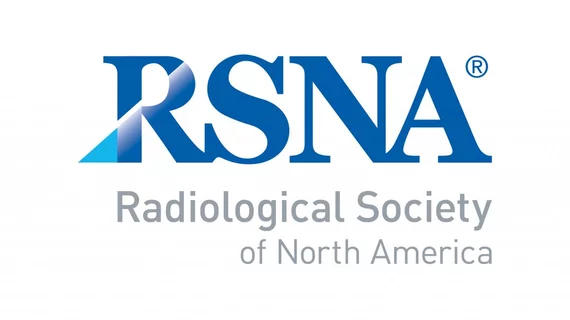RSNA kicks off new AI webinars, initiatives for August
The Radiological Society of North America (RSNA) has launched new webinars and workshops aimed at educating radiologists, researchers and industry scientists about artificial intelligence (AI) and machine learning in medical imaging, according to an Aug. 2 RSNA press release.
A series of live, 60-minute webinars on AI and its applications for radiology will kick off with the the first titled, "Intro to AI and Machine Learning: Why All the Buzz?" to be held Aug. 29.
RSNA will offer additional AI webinars in October, December and February 2019, according to the release.
Also set for August, RSNA will co-sponsor the National Institutes of Health (NIH)/National Institute of Biomedical Imaging and Bioengineering workshop, "Artificial Intelligence in Medical Imaging” alongside the American College of Radiology and the Academy for Radiology and Biomedical Imaging Research.
This year’s RSNA Pneumonia Detection Challenge, which invites researchers to develop algorithms to identify and localize pneumonia on chest x-rays made available by an NIH data set, kicked off this month and the most accurate submissions will be evaluated at the 2018 RSNA annual meeting in November.
"In the years to come, RSNA's support for education, research and innovation in this field will grow as AI becomes an integral part of radiology practice," said Curtis Langlotz, MD, PhD, RSNA board liaison for information technology and annual meeting, in a prepared statement. "RSNA will continue to educate not only radiologists but also researchers and industry scientists about AI and machine learning."

